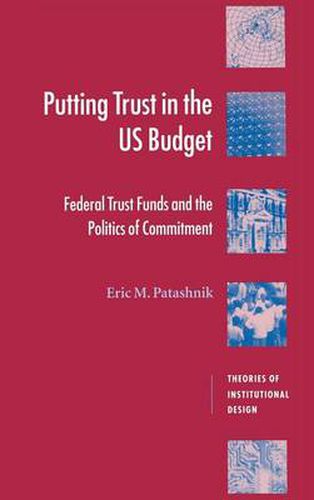Readings Newsletter
Become a Readings Member to make your shopping experience even easier.
Sign in or sign up for free!
You’re not far away from qualifying for FREE standard shipping within Australia
You’ve qualified for FREE standard shipping within Australia
The cart is loading…






In the United States many important programs are paid from trust funds. At a time when major social insurance funds are facing insolvency, this book provides the first comprehensive study of this significant yet little-studied feature of the American welfare state. Equally importantly, the author investigates an enduring issue in democratic politics: can current officeholders bind their successors? By law, trust funds, which get most of their money from earmarked taxes, are restricted for specific uses. Patashnik asks why these structures were created, and how they have affected political dynamics. He argues that officeholders have used trust funds primarily to reduce political uncertainty, and bind distant futures. Based on detailed case studies of trust funds in a number of policy sectors, he shows how political commitment is a developmental process, whereby precommitments shape the content of future political conflicts. This book will be of interest to students of public policy, political economy and American political development.
$9.00 standard shipping within Australia
FREE standard shipping within Australia for orders over $100.00
Express & International shipping calculated at checkout
In the United States many important programs are paid from trust funds. At a time when major social insurance funds are facing insolvency, this book provides the first comprehensive study of this significant yet little-studied feature of the American welfare state. Equally importantly, the author investigates an enduring issue in democratic politics: can current officeholders bind their successors? By law, trust funds, which get most of their money from earmarked taxes, are restricted for specific uses. Patashnik asks why these structures were created, and how they have affected political dynamics. He argues that officeholders have used trust funds primarily to reduce political uncertainty, and bind distant futures. Based on detailed case studies of trust funds in a number of policy sectors, he shows how political commitment is a developmental process, whereby precommitments shape the content of future political conflicts. This book will be of interest to students of public policy, political economy and American political development.